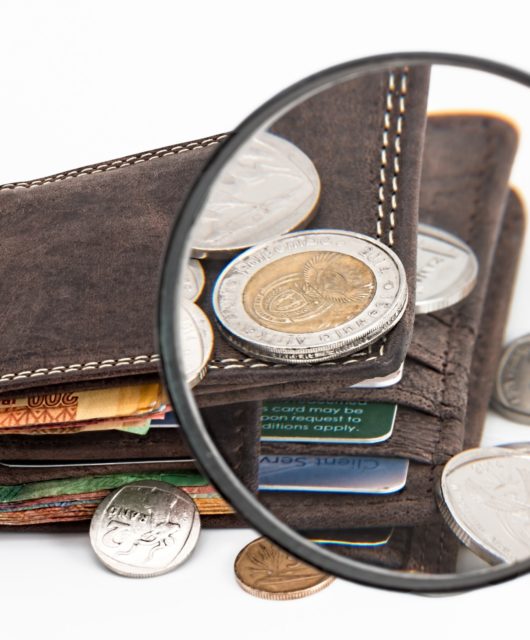The Difference Between Debit and Credit Along With Which to Choose
 The average person spends over $70,000 per year on goods and services. That’s a lot of money, especially when you consider that the average wage in the United States is just a tick under $40,000.
The average person spends over $70,000 per year on goods and services. That’s a lot of money, especially when you consider that the average wage in the United States is just a tick under $40,000.
People spending money that they don’t have is a topic for another day though. Today, we’re going to be discussing how people pay for the things that they want/need.
When you walk up to a counter to pay for something, it’s not uncommon that a clerk will ask you, “debit or credit?”
That’s a pretty good question, right? After all, what’s really the difference between debit and credit?
As it turns out, there are some pretty profound differences between these two types of technologies despite the fact that they essentially achieve the same end.
Below, we explore these differences by looking at debit and credit card’s pros and cons.
Table of Contents
Debit Cards
The first piece of money technology that we’re going to explore in our difference between debit and credit debate are debit cards.
Debit cards are probably the kind of card that people are most familiar with. That’s because, if you have a bank account, you were likely given a debit card to access your account’s money when your account was opened.
Here are some of debit card’s key pros and cons:
Pro – Wide Acceptability
Any vendor that accepts plastic as a form of payment accepts debit cards. As a matter of fact, they vastly prefer them to credit cards because of fees.
Debit cards charge nominal fees for vendors to accept. Compare that to much larger 2%+ in fees that most credit cards charge per transaction and it’s no wonder why so many businesses don’t accept certain kinds of credit cards (Discover for example) or don’t accept credit cards at all.
Pro – Spending Caps
When you’re using a debit card, you’re pulling a finite amount of money directly from your checking account to pay for goods. If you were to spend more money than you had sitting in your bank, you’d overdraw your account and your card would get declined.
While that may not sound like a good thing, it serves as a good set of breaks on your spending.
Pro – Simplicity
Again, debit cards are what most people are familiar with because anybody with a checking account gets a debit card for free.
In addition to ease of acquisition, debit cards are interest-free and therefore, straightforward in how they work/less destructive than credit cards (more on that in a moment).
Con – Liability
Your debit card is directly linked to your checking account. If somebody steals your card and manages to get it working, they can drain your financial livelihood.
Furthermore, your bank’s liability policies for fraud may not be as helpful as the typically outstanding fraud liability policies that credit cards carry.
Credit Cards
Now that you know a little bit about debit cards, let’s move our difference between debit and credit discussion over to credit cards.
Credit cards are profit-focused cards that aim to make spending a lot easier for consumers. Companies that hand out credit cards make their money by charging vendors higher fees and by charging consumers interest if they spend money that they can’t pay back all at once.
Here are some key credit card pros and cons:
Pro – Liability
Credit cards are a buffer between you and your personal bank accounts. If somebody steals your credit card and runs up a balance, simply call your card company and report the unauthorized charges.
By law, credit card companies can’t hold you liable for more than $50.00 in damages for fraudulent purchases. Almost every reputable credit card takes that requirement further by making their customers 0% liable.
Pro – Rewards
The best credit cards incentivize users to spend money by offering them rewards. These rewards typically come in the way of cashback that users get on each of their purchases.
In theory, if you had a rewards card that you used for all of your purchases and then paid back your balance in full each month, you’d essentially be getting paid to use your credit card since A) you’d be getting cashback and B) credit cards don’t charge interest on balances that get paid back in full at the a billing period.
Pro – Spending Power
This benefit is debatable. For some though, having a credit card that offers them a high “spending-limit” (the amount of money you can spend before getting cut off) is helpful.
Con – Not Everyone Qualifies
In order to get a good credit card, you have to qualify for it. Qualifications are usually based on how much money you make and what your credit score is.
Con – Potentially Catastrophic
Millions of people have had their financial lives destroyed by credit cards.
Part of the reason why this happens is that certain credit card companies are deceptive. Most of the reason why this happens is because people do not know how to manage their spending.
If you have a credit card and with it, spend more money than you have in your checking account and don’t keep up with your payments, compound interest will drive how much money you owe through the roof.
Don’t fall into that trap.
Always use credit responsibly if you’re going to use it at all.
Wrapping Up the Difference Between Debit and Credit Cards
After looking over the pros and cons that we’ve just laid out for you, you should have a much better understanding as to what the difference between debit and credit cards are.
Armed with that information, we hope that you’ll be able to make a good decision as to whether having both kinds of cards is right for you or if sticking with a debit card is the better option.
For more helpful lifestyle advice, read more of our stellar content today!









